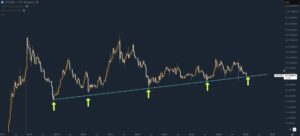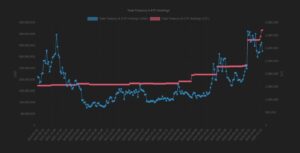The world’s biggest financial institutions racked up over $12.79 billion in fines in 2020, a study found recently.
The most common breaches were anti-money laundering violations, the laws against which are supposed to prevent criminals from shuffling illegally obtained funds (through terrorism, human trafficking etc) as legitimate income.
Of all the violators, US banks paid the largest fines. In fact, over 12 fines worth a total of $9.38 billion were levied on the country’s banks for several lapses.
Next on the list were Australian banks, which racked up over $981 million over three fines. Over $919 million of that came from the country’s second-largest bank, Westpac, which was found guilty of failing to check money laundering from terrorism-linked organisations.
Banks in China were fined the most in Asia, followed by Iran.
Per the report, Chinese banks incurred fines of over $87 million in connection to more money laundering cases, while Iran’s Future Bank was fined $37 million by Bahrain courts after three bank officials were found guilty of – you guessed it – money laundering.
US banks had the most fines
Of all banks, US-based Goldman Sachs, a legacy financial titan founded in 1869 with the most influential network in the world, paid the largest fine in 2020. The bank was fined $3.9 billion for bribery charges in Malaysia and Abu Dhabi – a case now known as the 1MDB scandal. Another $2 billion were forked out to US authorities under different charges in the same case, totalling $6 billion in charges.
Buying bitcoin? Start here.
Among other US banks, Wells Fargo was forced to pay $3 billion fine in connection with a fake accounts scandal, and JPMorgan paid $920 million after its traders used ‘spoofing’ techniques to rig publicly traded precious metals markets. Spoofing consists of faking market demand and supply in order to get a specific outcome.
European Banks are not outliers
Meanwhile, major banks in Europe were fined €1 billion for collusion in currency trading. The banks included Barclays, the Royal Bank of Scotland, Citigroup, JPMorgan and Japan’s MUFG, all of which were found to have banded together as trading cartels to manipulate unsuspecting European market participants.
Last but not least, Deutsche Bank AG was fined €13.5 million by Frankfurt prosecutors over money-laundering violations related to the Danske bank – a perpetually embattled institutions which continues its downward spiral.
Just last week, it emerged that Danske bank will be fined around 2$ billion for another money laundering case – wherein $223 billion vanished in a financial black-hole.
Reliably Fraudulent Behaviour
While it is neither popular nor interesting to report on such bad behaviour, banks all around the world prove year after year that they are reliably fraudulent. This trend has only accelerated since the 2008 financial crash, per various reports. Of course, the line between what constitutes fraud and what does not shifts as regulators adapt to a technology-driven double-edged sword, but one is forced to question how anti-money laundering laws apparently fail to mitigate money laundering every single year without fail.
In light of these failures, it’s also prudent to discuss whether a positive feedback loop exists between regulators and bankers, in which there is little motive to minimize such incidents.
Bitcoin is exchanging hands at $38,250 at the time of writing.
Subscribe to the semi-weekly newsletter for regular insight into bitcoin and crypto. Go on.
It’s free.Join the telegram channel for updates, charts, ideas and deals.
Did you like the article? Share it!


